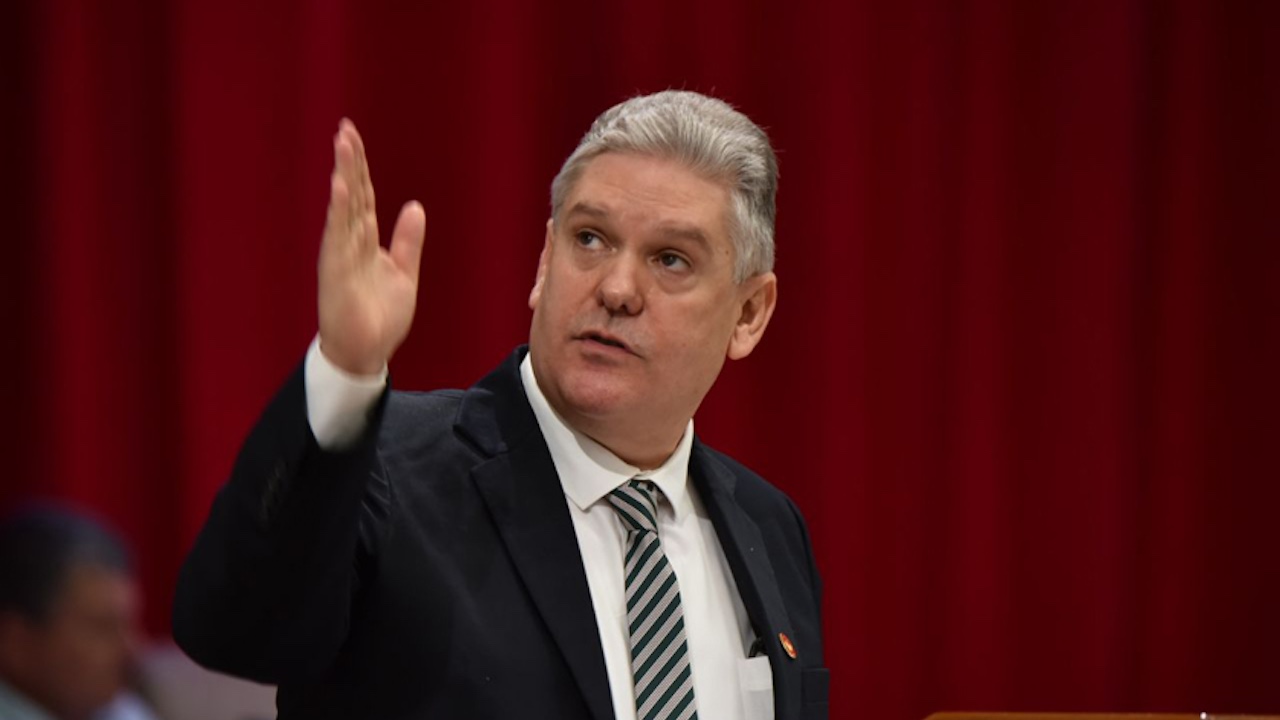Alejandro Gil bears much more guilt, and of a greater magnitude, than any of the drivel that his current executioners, formerly accomplices in the annihilation of a whole people, will accuse him of. It is already clear that this kangaroo court that is just getting underway cannot be considered an instrument of justice. Karma? Perhaps. A vendetta between mobsters? Probably. Justice? No way. This criminal did nothing that was not approved "at the highest level," to use the term with which Captain Miguel Ruiz Poo implicated Fidel and Raúl Castro during the show trial of Arnaldo Ochoa and other figureheads.
We can also discard the popular explanation that this is a circus to justify the economic debacle and/or to keep the public entertained. Blaming Gil individually for Cuba's economic problems would be like blaming Bad Bunny for the abysmal level of today's music around the world. Even the dumbest fool knows that they are both bad interpreters of a systemic problem, so burning them on a pyre, no matter how cathartic, does not solve the underlying problem.
In this information age, excommunicating Gil does not deceive anyone. And they, who are neither fools nor disconnected from what the people feel, suffer and think, know that we know that decisions in Cuba are not made by Gil, even if he was a minister or vice president.
Lifting the veil of corruption does more structural damage to the government than the supposed benefit of "entertaining" the populace with stories believable only by the most gullible. During this era times of social networks and independent press, Stalinist trials have a boomerang effect, and more so when the credibility of Castroism is more lost than the "achievements of the Revolution."
This farce has a target audience, but it is not the people, but rather the Castroist sector that looks on, defeated —perhaps definitively— as another sector crushes Diaz-Canel's closest collaborator.
Since Fidel's time, Castroism has had two souls: on the one hand, the party's politicians; on the other, the military. It is a known ploy of mafia bosses to keep their subordinates competing, fighting, watching each other, destroying each other.
During the era of Fidel Castro, the political wing dominated. Military officials were given business positions when this was necessary, but power was held and decisions were made by Fidel and his political circle, while those under Raúl's wing were extremely well-fed fighting dogs with economic benefits, but not power.
When Raúl Castro inherited power, his military cronies, who already wielded great business influence, almost came to govern, but Raúl did not give them the keys to the kingdom, as this would have been a de facto abdication, since political, economic and military power would have been concentrated in a group that could have eventually disputed Raúl's position as Capo di tutti Capi. Thus, the general chose a survivor of the party, Díaz Canel, a politician of proven ineptitude.
Since then Cuba's military and its politicians have existed in a tense standoff, even while fattening off the spoils of a country that, having been reduced to carrion, is now insufficient to satisfy so many hyenas.
As some of us foresaw, the Castro regime would begin to unravel on the day that the loot was insufficient to continue buying loyalties. Less than a month ago we argued that the delay in the entry into force of the "big package" was most likely due to the Díaz-Canel faction being sabotaged. Now we see that the military is not only sabotaging it, but getting even, gangster style. Fearful and resentful, they are watching as the system that gives them their positions crumbles, mismanaged by a political wing in which Raúl placed his trust.
Since the end of last year, Prime Minister Marrero, a representative of the military in the administration, has taken a leading role in economic affairs and, if we are to believe what has been staged, displaced Díaz Canel in terms of leadership within the Government.
It is not yet known whether these "adjustments" are backed by Raúl Castro and his family, in which case the objective is to discipline and threaten Díaz-Canel (Gil was his right hand man and personal friend) and, perhaps, replace him with another member of the political wing, maintaining the status quo. Or, we may be facing a scheme by the olive green subordinates to convince the general that he must officially hand power to the military (who, de facto, already have it) as they are the only ones who can guarantee the future of the system.
Castroism is convulsing in a political crisis in which we have seen the president of the Government, personally appointed by the master of the country, publicly congratulate someone who just a few weeks later was branded a traitor after an investigation that was hidden from Díaz-Canel, or that was invented to attack him, although the objective beyond all this may be to displace an entire sector of Castroism that is too ideological, to instead promote a system more favorable to business, which is where the Cuban military has more experience.
Obviously, the dictatorship is weaker today than yesterday, but this story is not over yet. It is impossible to know whether these attacks are the beginning of the end, or the beginning of a new dictatorship under which, instead of being extremely miserable, we become moderately miserable, but still without freedom.
